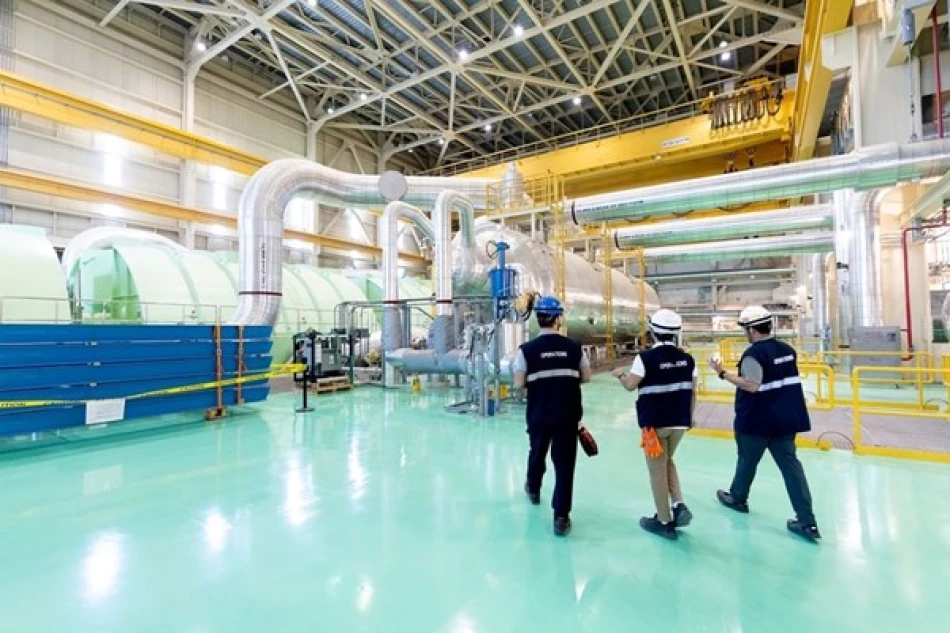
UAE Nuclear Energy Agency Launches Program to Upskill Reactor Operators
UAE Nuclear Energy Company Launches Elite Reactor Operator Program to Build Century-Long Energy Workforce
The Emirates Nuclear Energy Corporation (ENEC) has unveiled an ambitious reactor operator graduate program designed to cultivate the next generation of Emirati nuclear energy leaders. This strategic workforce initiative aims to secure skilled operators for the Barakah Nuclear Power Plant for over 100 years, positioning the UAE as a regional nuclear energy hub while ensuring long-term energy security through homegrown expertise.
Three-Year Fast-Track to Nuclear Leadership
The program targets high-achieving Emirati graduates with bachelor's degrees in engineering disciplines including electrical, mechanical, and nuclear engineering. Participants begin their careers as field operators at the Barakah Nuclear Power Plant, gaining comprehensive knowledge of plant operating systems through hands-on experience.
After three years of proven excellence, successful operators advance to reactor manager training—a critical role responsible for safe reactor operations, maintenance, and plant system testing. This accelerated pathway reflects the UAE's urgent need to build nuclear expertise quickly while maintaining the highest safety standards.
Strategic Investment in Energy Independence
Mohammed Al Hammadi, CEO and Managing Director of ENEC, emphasized that the program represents a strategic investment in Emirati capabilities. "Nuclear energy has developed an entirely new sector providing rewarding jobs for at least 100 years, contributing to job security for Emirati talent for decades to come," Al Hammadi stated.
This long-term vision distinguishes the UAE's approach from other Gulf states still heavily dependent on oil and gas revenues. By developing indigenous nuclear expertise, the Emirates is positioning itself for a post-carbon economy while maintaining energy abundance.
Regional Nuclear Leadership Ambitions
The UAE's nuclear workforce development mirrors successful programs in established nuclear nations like France and South Korea, where decades of consistent investment in human capital created world-leading nuclear industries. Unlike neighboring Saudi Arabia, which is still in early planning phases for its nuclear program, the UAE already operates commercial reactors and is building operational expertise.
With over 1,000 Emiratis already benefiting from ENEC's various programs—including scholarships, work-based training, and nuclear technology diplomas—the country has created the Arab world's most comprehensive nuclear education ecosystem. More than 70 Emiratis have obtained Federal Authority for Nuclear Regulation licenses as reactor managers and operators, forming the backbone of a 190-strong reactor operations team.
Market Implications and Regional Competition
For energy markets, the UAE's nuclear workforce development signals serious long-term commitment to nuclear power as a baseload complement to renewable energy investments. This dual strategy of nuclear and renewables positions the Emirates to become a net energy exporter even as domestic demand grows with economic diversification.
The program also creates competitive pressure on other Gulf states planning nuclear programs. Saudi Arabia's delayed nuclear timeline means the UAE will likely capture regional expertise and establish itself as the Middle East's nuclear services hub, similar to how it became the region's aviation and financial center.
Building a Nuclear Services Economy
Beyond domestic operations, the UAE's nuclear workforce development creates potential for exporting expertise and services across the Middle East and Africa. Countries like Egypt, Jordan, and Turkey pursuing nuclear programs will need experienced operators and managers—roles that UAE-trained professionals could fill.
The Barakah plant's advanced training facilities, described as among the world's most modern, position the UAE to become a regional nuclear education hub. This mirrors the success of countries like South Korea, which leveraged domestic nuclear expertise to win international reactor construction contracts worth billions of dollars.
ENEC's systematic approach to workforce development—integrating the new reactor operator program with existing graduate development initiatives—demonstrates institutional maturity rare among newcomer nuclear nations. This comprehensive strategy suggests the UAE's nuclear ambitions extend far beyond domestic energy security toward establishing a new pillar of economic diversification.
Most Viewed News

 Layla Al Mansoori
Layla Al Mansoori






